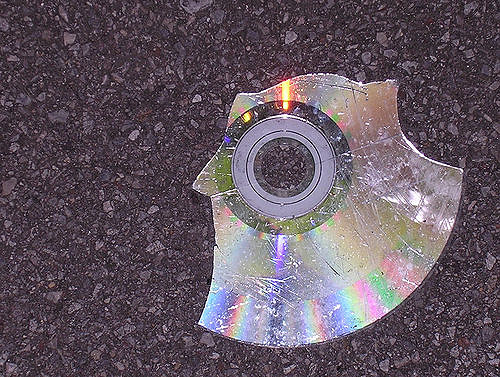
The DLA/DMU has taken flak over the years for being unwilling to embrace new trends, but this criticism forgets that we also avoided endorsing older bad ideas. Our writers have generally avoided jumping on the bandwagon for the “trve kvlt” just as much as the new, millennial-friendly indie-rock version of metal. The reason we can do this is that we apply a simple quality standard instead of using the consensus of others to determine truth.
Despite having many editors, each of whom had somewhat varied opinions on the process, if viewed on the large scale the site has kept a generally consistent opinion. That is: some of the so-called classics are good, and few of the new school releases are good, but the determination is not made by category, but by analyzing each release on its own merits. This leads to sudden shock for some who expected us to be cheerleaders for anything that seems to “uphold the true spirit of the underground,” and dismay for those who like the newer material as release after release fails our test.
Metal is in a slump and has been since 1994, in quality. Correspondingly, it has been in a boom in terms of quantity of fans. We have more “metalheads” (cough) now than ever before. However, anyone who is not in denial — and most are — can tell you that quality has fallen off dramatically. The music has lost its energy, its nerve and its insight and been buried under a wave of bands that are either obedient and docile system products, or slaves to the underground record-collecting audience that does not care about quality so long as the aesthetics of previous generations are preserved. Both groups unfortunately are useful idiots for industry, which can keep producing low-cost clone bands and reaping the profits.
We discard bands for two reasons: not being metal, and not being good. The bands that are simply not good tend to have the most fans, ironically. Who among us can claim that, for example, Blazebirth Hall bands and Drudkh offered anything musical or artistic to metal? They cloned Graveland in a light and breezy melodic form that is essentially music for children. In the same way we refuse to celebrate underground “favorites” that consist of ranting and disorganized music like Sepulchral Aura, or avantgarde prog fanboy-bait like Fanisk and Deathspell Omega.
In addition, we discard that which does not uphold the artistic, intellectual and philosophical spirit of metal. There is quite a bit of overlap here with “not being good.” We would not endorse Cradle of Filth; nor would we endorse Opeth, back in the day, or Cannibal Corpse, on the basis that they were essentially rock bands trying to assimilate metal and thus produced a moronic mindset. Similarly Pantera and to a lesser degree, Anthrax. Back in the day we thought SOD was inferior to Cryptic Slaughter, DRI, and Corrosion of Conformity. We refused to endorse Wolves in the Throne Room, Animals as Leaders, Gojira, Mastodon and other indie-rock pretending to be metal. We ignore Pelican and all stoner doom bands because they are boring and terrible. This music is distraction from metal, not metal, but its fans make a big show of being “very metal,” which tells you exactly what they are hiding and deflecting your attention from.
This approach wins us zero friends in the short term, but trusted readers in the long term. People — especially those who lead purposeful lives and do not have lots of time, nor enjoy, combing through catalogs and blogs trying to figure out which 1% of the reviews are not lies — like getting the low-down on quality metal. They enjoy that moment of discovery when they find something really good, something they can listen to not just this week and six months or a year from now, but for future decades. That is ultimately the standard by which any music fan operates; they like music, so they veer toward the best, not just at a level of mechanics (technicality) but artistically, or its relevance to the ongoing philosophical and moral maturation of humankind. Most of humanity likes mediocrity or at least convinces itself that it likes those bands. After all, Third Eye Blind has sold more records than most segments of the metal genre. But popularity — whether among credulous hipsters or gormless mass media fans — has never determined quality. Consensus is not reality. Only reality is reality, and we make our best stab at it.
With that in mind, you may ask: why write negative reviews? The answer may surprise you. We seek to give music fans the intellectual tools they need to fight back the onslaught of Opeth, Pantera, Ulver, Cradle of Filth, Meshuggah, Vattnet Viskar, Cannibal Corpse and Deathspell Omega styled bands. We use both positive and negative examples to illustrate, to the best of our ability, what metal is and which approaches to it have produced the quality level necessary for prolonged listening. This puts us at odds with most metal journalists, for whom writing is a day job and as a result, is interpreted as endless enthusiasm for whatever is new and exciting because the consensus likes it. They are essentially advertisers because they are writing ad copy about these bands, not a look into what makes their music function. It is designed to make you buy music, because journalists who can sell music get famous and become editors. You will notice that major publications run almost no negative reviews. Why is that, you might ask? Because their job is to sell music, not review it, even if they call it “review.”
In all human endeavors our social impulses, which because we are selfish beings are actually self-interested impulses translated to altruism to flatter and manipulate others, override any sense of quality or purpose. The task ceases to become the task and becomes the process of creating the appearance of results instead of results; bands stop trying to be good, and focus on replicating what has worked before in new forms. The “best” (by consensus) bands “sound” different on the surface, but musically are extremely similar, because that formula has worked in the past. That is a social impulse: make what people like because it does not challenge them and makes them feel smart, profound or at least “with the crowd” to be listening to it. This social impulse has ruined metal since 1994.
Metal thrives — as it did during the mid-70s, early 80s and early 90s — under two factors: (1) it is ignored by most people, so it is free from the manipulations of those who want to sell rebellion-flavored rock to morons, and (2) it has some truly great artists to kickstart it and establish a standard. The former is self-evident, but the latter can be explained as follows. When early Norse black metal came out, it set a standard of quality and allowed fans, by simply choosing to spend their money on what was more rewarding, to exclude bands that did not meet that standard. Why would you buy Forgotten Wolves when you can get Darkthrone? Why would you pick up another speed metal clone when you can have top-quality death metal? Metal thrived when it was elitist, closed-minded and viciously competitive. Now that it has become a group hug, quality has suffered and no one seems to have noticed. Except us — and we are watching.
28 CommentsTags: artistry, assimilation, Black Metal, death metal, quality, quantity










